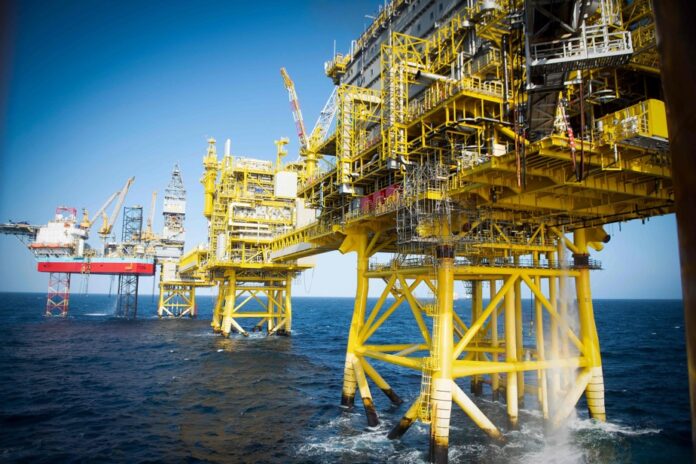(New York) Oil prices closed Tuesday at their highest level in more than nine months, boosted by announcements of the extension of the cuts made by Russia and Saudi Arabia, which tensed an already tense market.
The price of a barrel of Brent North Sea crude for November delivery gained 1.2% to end at US$90.04, a high since mid-November.
As for the barrel of American West Texas Intermediate (WTI), with maturity in October, it gained 1.3%, to settle at US$86.69, the highest closing price since mid-November as well.
Brent de la mer du Nord: US$90.04 1.2%
Western Texas Intermediate (WTI) : 86,69 $ US 1,3 %
Saudi Arabia has pledged to maintain its production cut of 1 million barrels per day (bpd) until the end of December, after already observing it from July to September, according to the Ministry of Energy .
The latter clarified that this strategy would be “reviewed monthly”, leaving him free to increase or decrease further the objective of around 9 million barrels per day.
Meanwhile, Russia has promised to starve the market of 300,000 bpd of exports in the last three months of the year, after cutting volumes by 500,000 barrels per day in August and then 300,000 in September.
“Fundamentals were already strong before this, but this is a turning point,” commented Phil Flynn of Price Futures Group. “It shows that OPEC [Organization of the Petroleum Exporting Countries] and Russia are determined to reduce their supply and show that they dominate the world market. »
Rystad analysts now expect a shortfall of 2.7 million barrels per day of supply versus demand in the last quarter of the year.
The draconian measures of the Saudis and the Russians have all the more impact on the market as no major producer appears in a position to fill all or part of this deficit.
In the United States, the number of wells in operation has fallen to a 19-month low, and the industry is being cautious, particularly in the shale oil sector.
“The big question is whether the Saudis are worried about demand” in the fourth quarter, “especially in China, to the point that they are taking preemptive action,” Jorge Leon said in a note. of Rystad.
But for Phil Flynn, “the demand is not the problem. It remains at record highs,” despite the poor activity indicators recently seen in Europe and China, while the US economy slowly decelerates.
The fact that the market is in a situation of marked “backwardation”, i.e. with prices much higher for an upcoming delivery than for a deadline in December or January, illustrates the current imbalance, points out Phil Flynn .
“There is nervousness, fueled by the fear that the supply will not be sufficient in a few months, insists the analyst. People are buying now to have reserves. »















